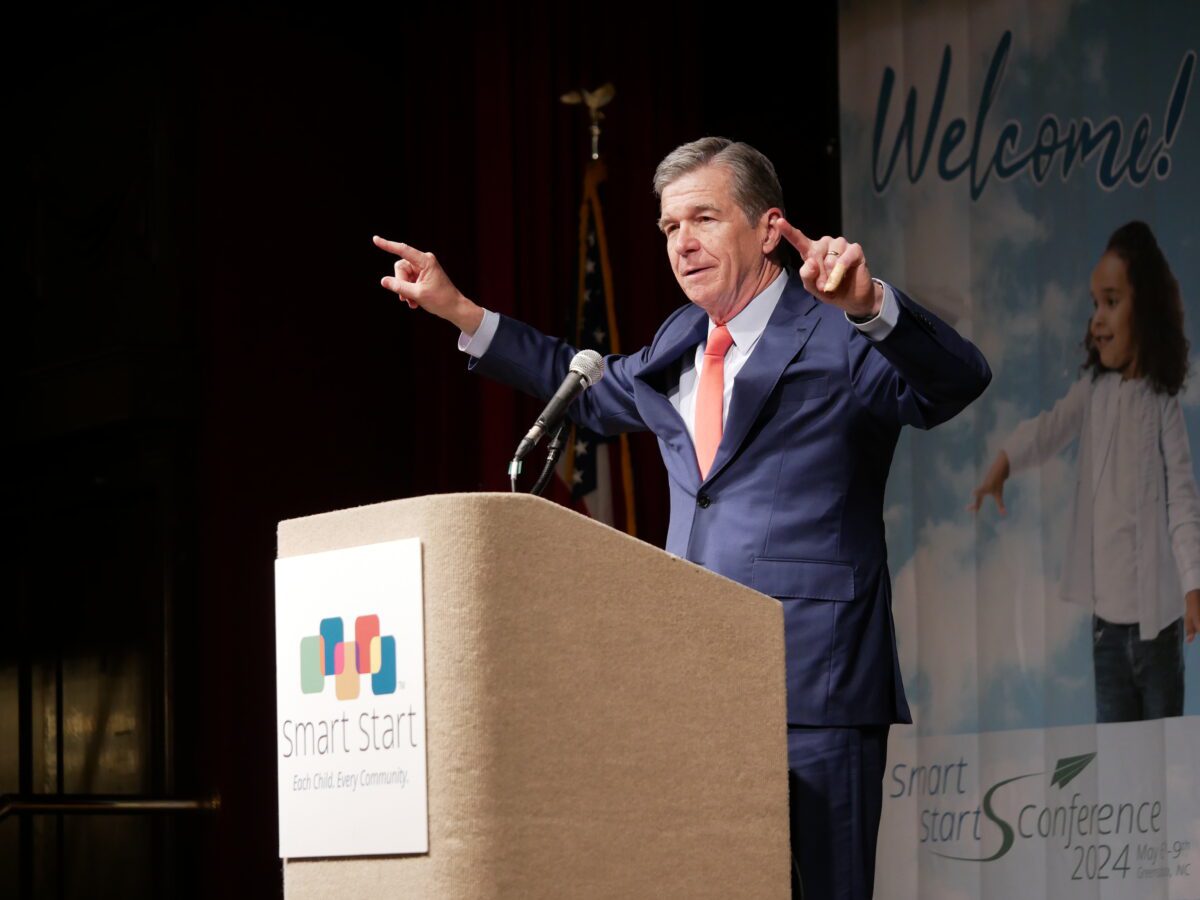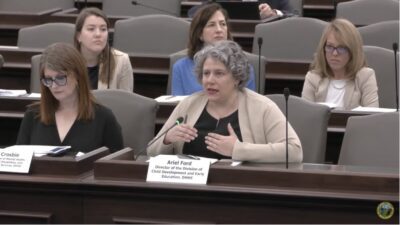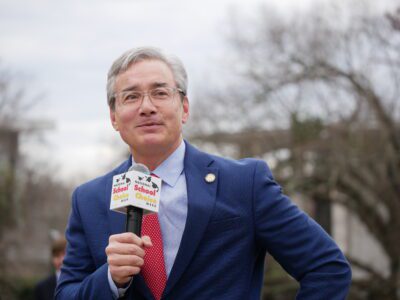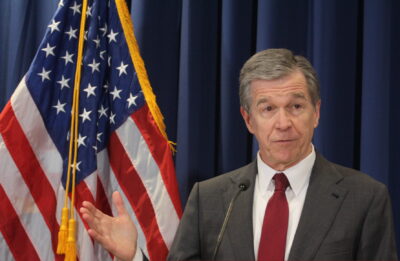
|
|
When Roy Cooper was elected governor in 2016, Medicaid expansion was politically unpopular among conservative legislative leadership, he told the audience at the national Smart Start conference Tuesday.
Yet last year, the state legislature chose to expand Medicaid. As of April 4, the state had enrolled 416,595 new participants since the expansion went into effect in December. That change took time, Cooper said, but there was “a bipartisan coalition of people across this state who believe that people should have health care.”
Cooper compared the legislature’s past attitude toward Medicaid to its current stance on education policy. He pointed to legislative inaction on child care stabilization last year and last week’s proposal to further expand Opportunity Scholarships, publicly funded vouchers for students to attend private schools.
He said a change in politics and policy similar to the Medicaid expansion could happen for state investment in child care and K-12 public schools.
“That bipartisan coalition across the state exists to support early childhood education and public schools — and we have to activate it,” Cooper said. “Because at the end of the day, elected representatives will listen to the people that they represent.”
Cooper released his budget proposal last month for this legislative session, which included $745 million over the next two years for early care and education, including a one-time $200 million in emergency funding to help child care programs avoid closure. His budget also would give an additional $1 billion to K-12 education, including an 8.5% average teacher pay raise.
Next, the House and the Senate will each release a budget plan, and then the two chambers will work toward a compromise budget.
In the last year, Cooper has visited 49 child care centers, schools, community colleges, and businesses across the state since legislation was introduced to expand school choice. He issued a “state of emergency” for public schools in response and focused his visits on raising awareness of the importance of public schools, and the need for early childhood investment.
“Early childhood has significant needs, and so do our public schools,” Cooper said at the Smart Start conference. “All you all are told to be doing more with less.”
In June, federal funding that has been stabilizing child care will run out, which experts predict will lead to child care closures and increased tuition fees for parents.
More on the child care cliff…
“I know early childhood education and quality child care are approaching a crisis point in North Carolina,” Cooper said.
Cooper said the state should extend that stabilization funding, increase compensation for early childhood teachers, expand subsidies for families to afford care, and increase funding for NC Pre-K and Smart Start.
He pointed to early childhood investment’s positive impacts for children, families, and employers.
“That’s why we really need our businesses to step up and say to legislators, ‘You have to invest in early childhood education,'” Cooper said.
Local and state business leaders are increasingly speaking out about insufficient child care as a barrier to workforce recruitment and retainment. The state Department of Commerce this year created a new position — a child care business liaison — to coordinate the involvement of the business community in child care solutions. And the state Chamber of Commerce has supported state child care funding in the last two years.
Cooper referenced North Carolina’s CNBC ranking as the country’s top state for business in 2023 and 2022.
“We won’t continue to be first in business if we become last in education,” he said.








